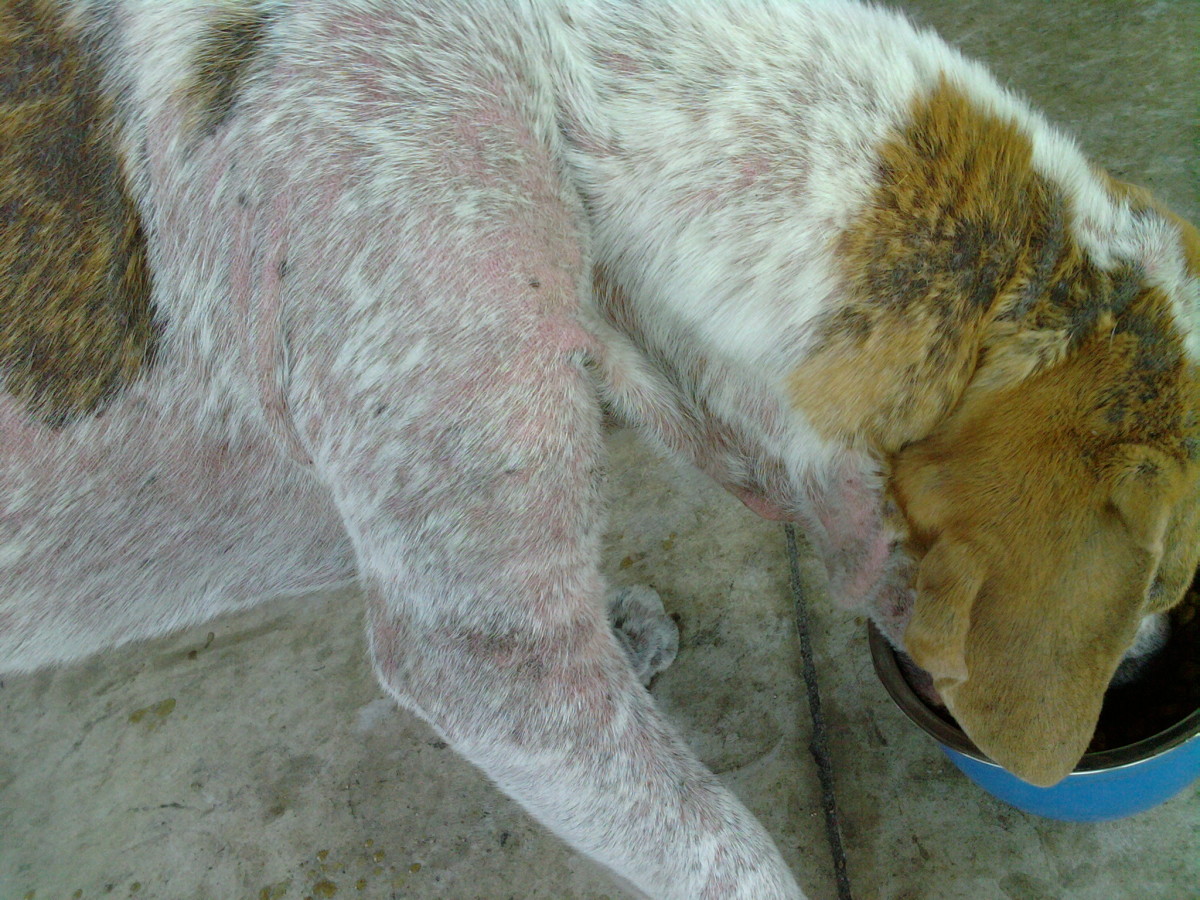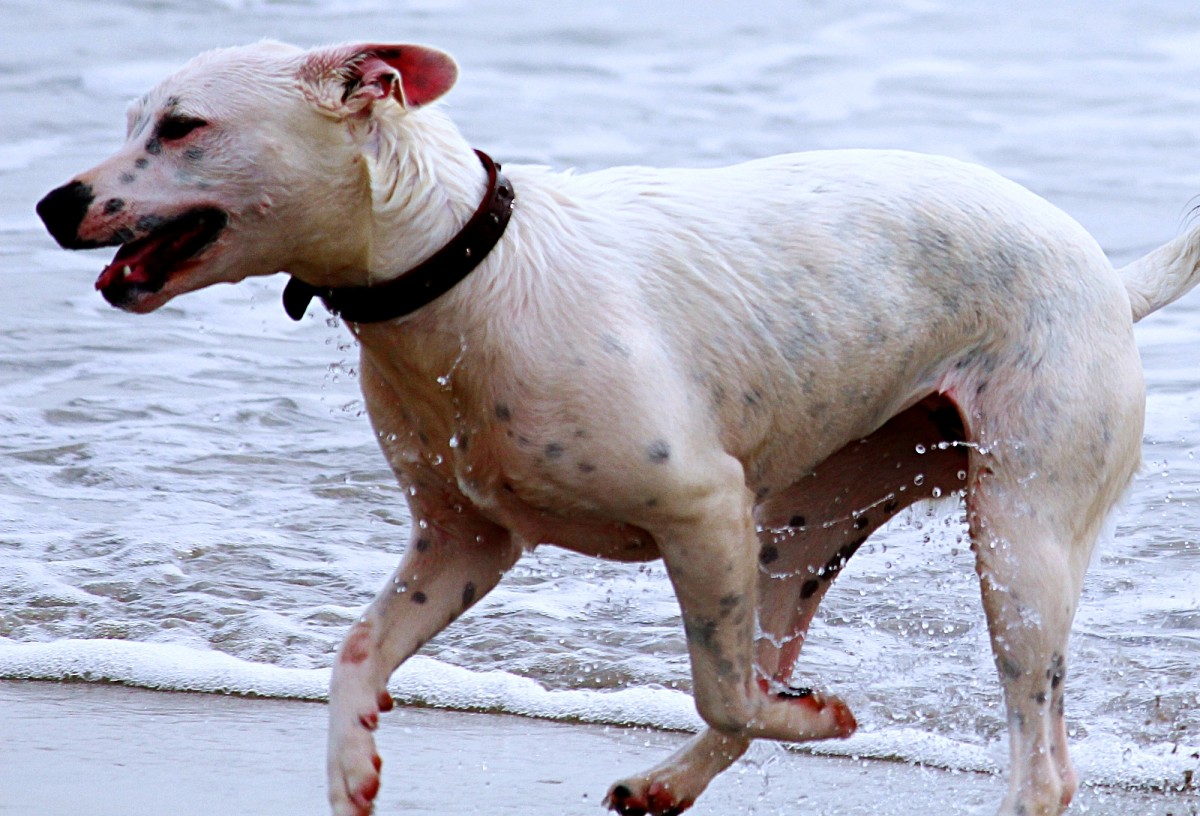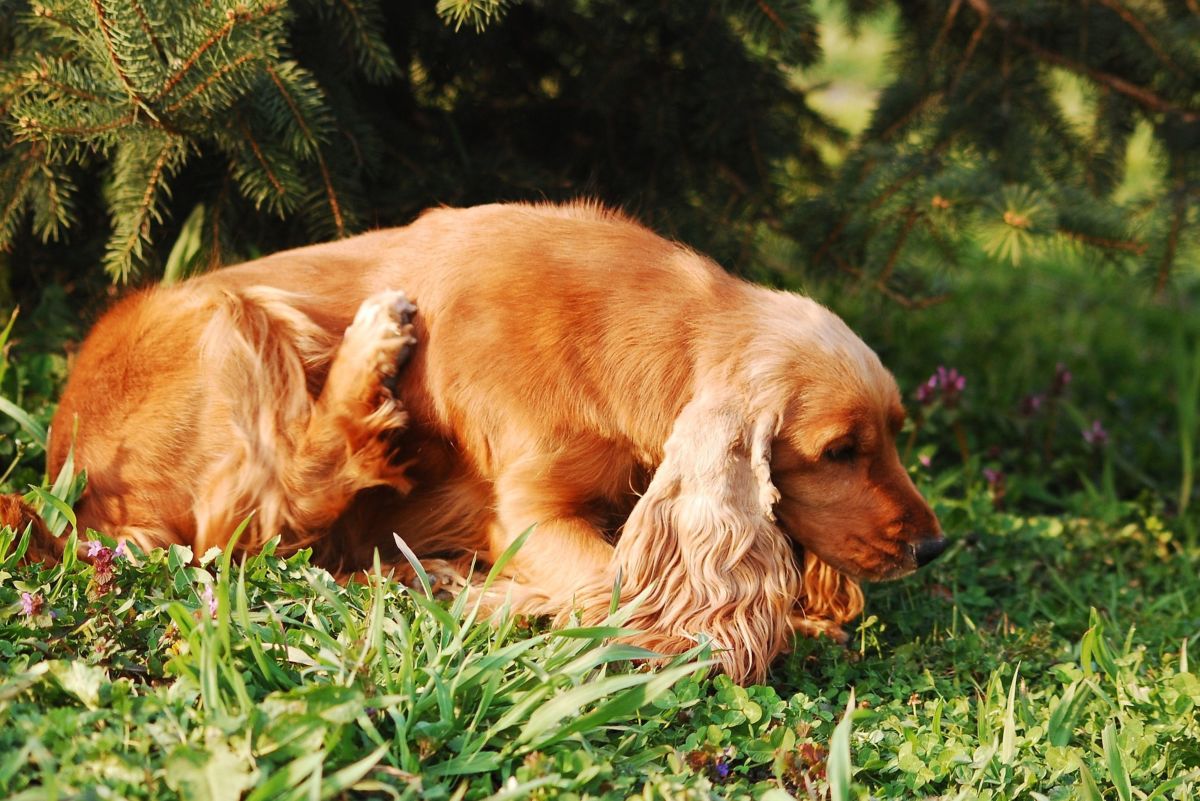- HubPages»
- Pets and Animals»
- Dogs & Dog Breeds»
- Dog Health
How to Help a Dog with Itchy Skin
Perhaps not many health ailments frustrate more than itching. Seeing your dog pitifully itching and scratching for half of the day may not be a nice picture of health and happiness. Some dogs may scratch until they develop raw spots, often referred to as ''hot spots'' other may also bite paws, tails and legs further aggravating the already irritated skin.
While there are some home remdies to sooth itching and provide relief, the most important factor to consider is figure out the underlying cause of itching. Unless the itching is related to a temporary issue such as a bug bite, very likely you may help provide relief but then if the underlying condition is not treated, the itching will very likely resurface with all its annoying symptoms.
Before, looking at home remedies, here is a list of possible causes of dog itching. Most are diagnosed through your veterinarian's investigative tools, therefore, if the itching is due to an underlying skin condition, seeking veterinary advice is fundamental in order to commence a proper treatment protocol.
Reasons Why Dogs Itch
1) Fleas
Yes, this may be obvious, but many times the fleas are not visible an owners may bypass this possibility. Owners may think that it is impossible that their dog has fleas because they think they live in a non flea infested area. However, fleas are very hardy creatures, they can live all year long in a home hiding in all the nooks and crannies of the home or they may be on your next dog neighbor's dog and hitch hike a ride on your shoes until they get to your dog.
The best way to determine if your dog has fleas is by looking for flea dirt. If your dog is light colored it may be quite easy to see some tiny speckles resembling pepper when parting the dog's fur. In order to find out if this is actual dirt or if it is actually flea dirt (which by the way is composed of flea droppings) you will have to place this dirt on a wet paper towel. If te dirt becomes reddish and leaves tiny blood stains, indeed you are looking of flea droppings.
2) Allergies
Allergies in dogs is very common nowadays. It could be to almost anything, but the most common culprit is food. Grains, chicken, preservatives, beef, can cause annoying skin allergies that tend to not go away until the dog is put on am exclusion diet. It may take weeks for the dog to finally feel better.
Other allergies may be caused by the environment, think of chemical products used to clean, air fresheners, pesticides in the grass, and many more. These allergies however, should get better once the exposure to the trigger is limited.
3) Infectious Agents
In this category are included yeast, bacterial, and fungal organisms in general that like to live on a dog's skin. If the skin appears to have an odor and looks greasy this is often due to the presence of yeast. These organisms are diagnosed via tests by your veterinarian. A skin culture is often a preferred method.
4) Anxiety
Just as humans bite their nails, a dog will lick, scratch and bite at its paws when under stress. The stress may be have various origins, generally dogs will become stressed after a recent move, a new family member, a new pet addition, or any general change of routine.
There are many more causes of itchy skin in dogs, so many that veterinarians are often left scratching their heads themselves, as the cause may be quite difficult to find at times.
Omega 3 fatty Acids; the secret to healthy, glossy skin

Now, that some common causes of itching have been looked at, here are some good old home remedies that may help sooth the itchiest skins.
Home Remedies For Itchy Dogs
-Oatmeal
Oatmeal baths work great because they are soothing and a natural way to give relief to irritated skin. Colloidal oatmeal such as Aveeno added to the water in the bath tub may really make a difference. Use cool water only, cool water works much better than warm in providing relief. As much as you want to give relief, however, please keep in mind that too many baths may actually strip away the dog's natural oils in the skin making problems worse.
-Fatty Acids
The addition of Omega 3 fatty acids may work very well when dealing with dry, itchy skin. There are several fatty acid supplements available in pet stores or over the Internet. Some dog foods are also supplemented with omega 3 fatty acids. Results will show up shortly with a nice, healthy and glossy skin.
-Benadryl
Ask your veterinarian about giving your dog some plain Benadryl. According to this Pet Home Remedies website, it may help relieve itching. As with any medications there are risks for side effects. This should be given only short term until your veterinarian may assess the underlying cause of the itching.
As seen, there are various things you may do at home to provide some relief. But that's it: relief. If your dog is itching and scratching it means that your dog's skin is reacting to something that needs addressed properly. So give your dog the best relief it can have, having him seen by your vet. Only this way you can get to the root of the problem and hopefully permanently solve those annoying itching spells.
Dsiclaimer; the above article is not to be used as a dignostic tool nor as a substitute for veterinary advice. If your dog has skin problems please refer to your veterinarian for a hand's on examination.








